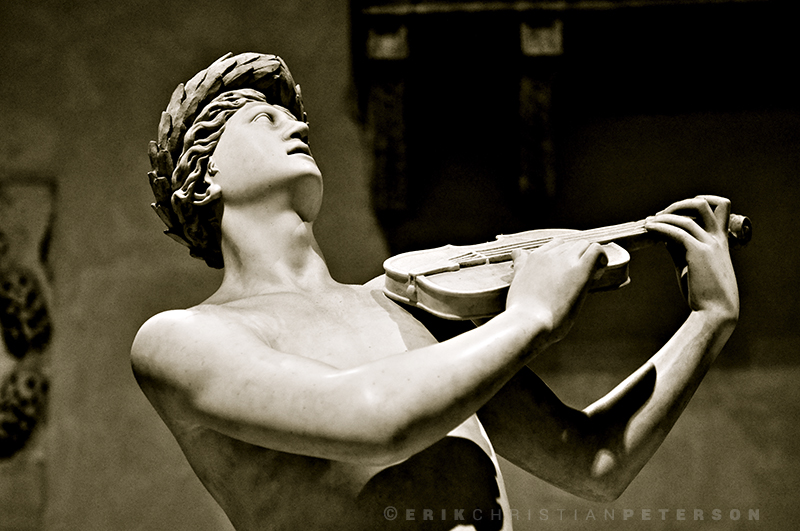So, you want to be or are a classical musician? What are you willing to do and how far are you willing to go to pursue your dreams? Being a classical musician and creating a “successful” career has never been easy, and it is not getting any easier in the twenty-first century.
What does it mean to be a musician in the twenty-first century? This question was asked of 142 classical, conservatory-trained musicians in my most recent research study, which explored the various aspects of a twenty-first century career in classical music. One of the most depressing definitions I received?
“It [being a musician in the twenty-first century] means to be a pallbearer of a dying art, kind of like being a museum curator – important that I keep it going, keep people interested.”
Every musician had a slightly different definition and the tone of each response varied from frustrated to hopeful to resigned to excited. All of the responses could be summarized into eleven different statements. A musician in the twenty-first century means:
- Being a chameleon – able to do lots of different things
- Communicating and connecting with others through music
- Being flexible and multidimensional; be willing to start over if you need to
- Creating your own career path
- Being in the right place at the right time
- The willingness and ability to do anything
- Reconnecting with a sense of ownership with the art one is creating
- Having the ability to talk on- and off-stage in a formal and informal manner
- A Citizen Artist
- Being a conduit of waking people up
- Finding creative ways to make people interested
The main priorities for performance graduates as musicians in the twenty-first century seem to be thinking creatively, being multi-genred (not just classical), being flexible, being an advocate for art, and findings ways to engage new, old, and current audiences. One musician stated, “We need to teach musicians to be original thinkers and that’s not a priority right now [at conservatories]. There is such a tiny market for “pure” classical musicians that the need for a different attitude and approach to conservatory education is truly becoming a necessity.”
To be perfectly clear, these are now the main priorities for GRADUATES, not current students. Nearly all of the conservatory-trained graduates that I surveyed and interviewed admitted to not considering while in school their professional lives and careers post-graduation. Most simply assumed a job would be waiting for them upon graduating from their prestigious school or conservatory of music. Years of professional life as a musician has taught them otherwise, and it has not been easy.
This shift in priorities post-graduation is a direct result of the music industry and the demands for what classical musicians have to offer consumers. Graduates were asked to identify those jobs for which they felt a conservatory-trained string player was qualified. These jobs were limited to the following:
- Instrumental teacher: all conservatory-trained musicians can fall back on teaching (but not necessarily conservatory or college level teaching because that often requires additional education)
- Orchestral musician
- Soloist
- Freelancer: commercials, recordings, weddings, events
- Teaching artist
- Starting your own ensemble
- Making your own job/career
- Not qualified for anything other than a musician
With the possible exception of Teaching Artist, these are essentially the same outlets that have always existed for the conservatory-trained musician. Pre-existing jobs are not growing on trees and opportunities to be entrepreneurial are not always obvious. Some respondents even mentioned they don’t feel that starting an ensemble is entrepreneurial in nature as it’s already been done; to them, only by forging a completely new path can one be considered entrepreneurial.
This is part of the dilemma for twenty-first century musicians. Technological progress, the permeation of and fast access to music everywhere, and the ever fickle desires and mores of societies leave many classical musicians at a loss and demands creativity.
Do you have a definition for musician in the twenty-first century?
How is it different now than, say, 50 years ago?
Do you agree with the first quote that being a musician in the twenty-first century is being the “pall-bearer of a dying art?”
I’d love to hear your thoughts!
